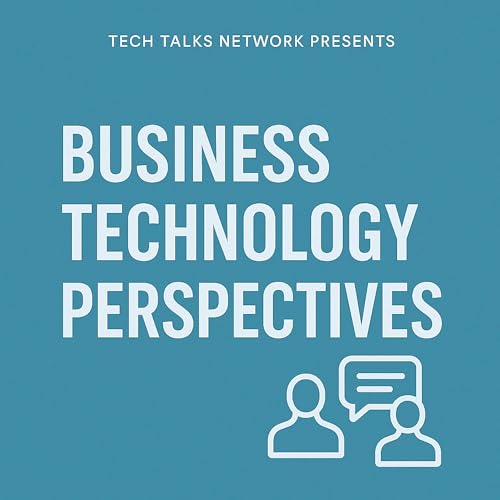Sales enablement has come a long way from slide decks and one-size-fits-all training. In this episode of Business Technology Perspectives, I’m joined by Bill Dwoinen, Chief Revenue Officer at Mural, to explore how AI and visual collaboration are changing the way teams sell, learn, and align around outcomes.
Bill brings a wealth of experience from Salesforce and LinkedIn, but what makes this conversation special is how openly he shares the lessons Mural has learned from its own transformation. Once known purely as a visual collaboration tool, Mural is now evolving into a platform that helps organizations accelerate deal velocity, strengthen customer retention, and align teams through what he calls “collaborative selling.” For Bill, the goal is simple: help people spend less time managing tools and more time solving real customer problems.
He talks about the growing disconnect between sales strategy and enablement, explaining that many teams today have lost touch with foundational skills such as discovery and negotiation. The solution, he says, lies in a three-part framework of training, enablement, and execution, each powered by technology and reinforced through timing and alignment with the business strategy. This isn’t about piling on new software but understanding what problem each tool actually solves and how it supports human performance.
We also explore how AI is reshaping the sales process in ways that are both practical and profound. From generating account insights in minutes to surfacing hidden “Trojan horse” contacts, AI is helping sales teams work smarter without replacing the human element. Bill shares how simple AI prompts have turned Mural’s own teams into experts on their target accounts, driving consistency, efficiency, and confidence across the field.
Our discussion also touches on the cultural side of enablement, breaking down silos, moving back to more synchronous communication, and bringing inclusivity into decision-making. As Bill puts it, great enablement mirrors great product design: if you build it without the user’s feedback, it doesn’t matter how good it looks.
By the end of this episode, it’s clear that Mural’s next chapter isn’t about whiteboards or sticky notes. It’s about empowering teams to think together, act faster, and use AI to bring clarity to the chaos of modern sales.
Listen now to hear how Bill and his team are redefining enablement in an AI-driven world and why sometimes, the smartest sales strategy starts with asking better questions.
 35 mins
35 mins 20 mins
20 mins 38 mins
38 mins 39 mins
39 mins 33 mins
33 mins 30 mins
30 mins 29 mins
29 mins 36 mins
36 mins

